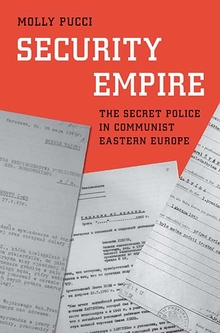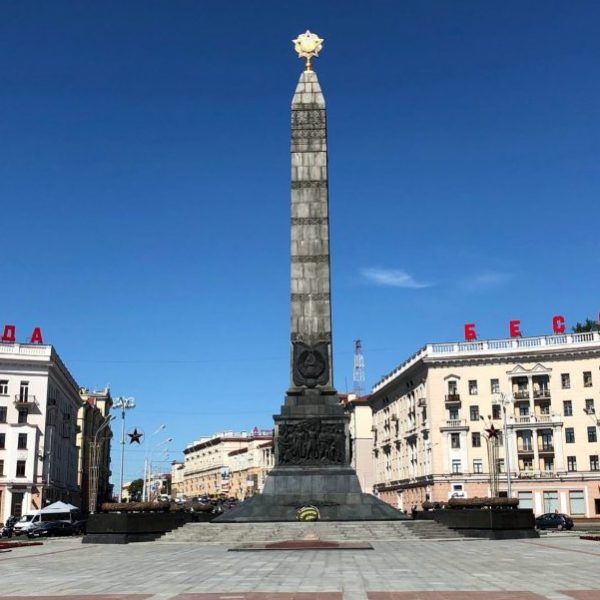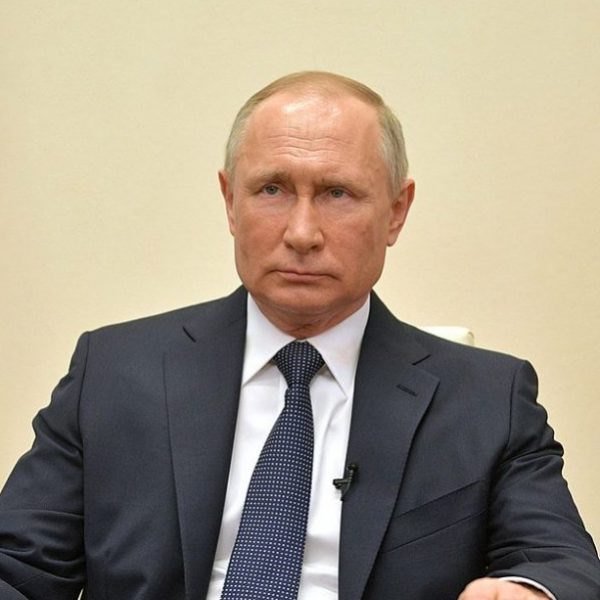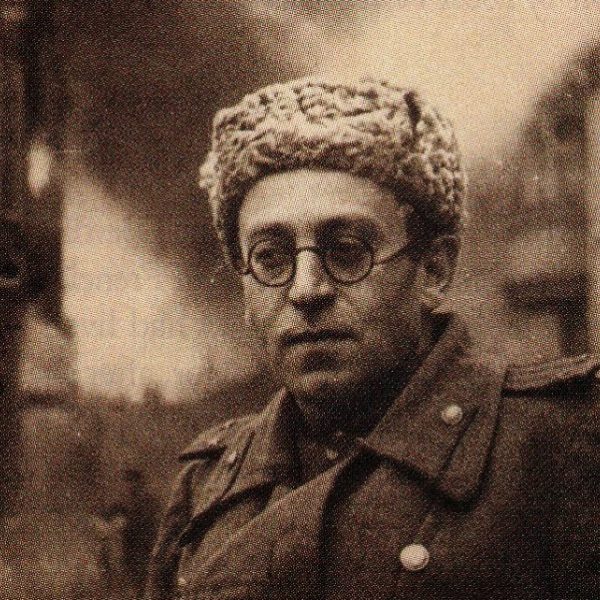The Trial of László Rajk
Molly Pucci—
News of the trial of the former Hungarian Politburo member László Rajk, staged as a show trial in Budapest between 16 and 24 September 1949, traveled quickly across the Eastern Bloc. Over the course of these fateful, widely propagated eight days, Rajk came to represent many things to many people. Some decried him for being an intellectual. Others condemned him for being a high-ranking communist who had betrayed his country. Still others raised questions about the connections he had made during his time in the International Brigades in the Spanish Civil War. Across the region vigilance was demanded of all communists since, as the case of László Rajk showed, intellectuals, high-ranking party members, and Spanish Civil War veterans could be unmasked as traitors or spies. Such messages were repeated in Warsaw, Berlin, and Prague and in regional, district, and local party cells in each country. As the historian George Hodos pointed out, the “details, charges, and persons in the Rajk trial were kept deliberately interchangeable” so they could be interpreted in different national contexts.
It was not only the message of the Rajk trial that traveled across the Eastern Bloc. Secret police agents from Poland, Czechoslovakia, and East Germany landed in Budapest to observe the Hungarian secret police and their Soviet advisers at work in investigations, interrogations, and the staging of the show trial. Józef Światło and Roman Romkowski arrived from Poland and remained in Hungary for close to two weeks. While there, they participated in interrogations, conversed with members of the Hungarian secret police, and recorded their impressions of the trial. The Czechoslovak officials Karel Šváb and Ivo Milén also went to Budapest, accompanied by members of the Czechoslovak procuracy, Ministry of Justice, and state court. Their observations informed the radical changes they made to the investigative and judicial systems in their own country and the creation of a new department to uncover enemies in the KSČ. One defendant in the Slánský trial that followed in Czechoslovakia, Artur London, recalled exclaiming to his interrogator, “But those are questions that Rajk was asked!” The Poles and the Czechoslovaks returned home with lists of names of their fellow party members who had been identified as enemies by the Hungarians. Such international connections and cross-border exchanges, which began with the common campaigns against class and social enemies declared by the Cominform in 1948 had evolved by the late 1940s into a joint crusade against internal enemies in the highest ranks of East European communist parties.
Although similar messages were repeated across the Bloc, each country took its own lessons away from the trial. In Poland, Bołesław Bierut announced that the trial had demonstrated the need to replace the potentially disloyal intellectuals who were holding party and state positions with members of the working class. In Czechoslovakia KSČ cells reached a similar conclusion: since the majority of those on trial were intellectuals, it was necessary to start recruiting new people from the lower class into state positions. After “assessing the Rajk trial,” they created a new position in the security force—the defense officer—to uncover potentially traitorous behavior among the service’s own agents. Soviet advisers arrived in Czechoslovakia in the fall of 1949 in conjunction with the search for enemies in the KSČ. They introduced new policing methods to the StB, including brutal interrogation methods to “uncover the Czechoslovak Rajk.” In East Germany (the GDR was founded less than a month after the trial) the trial informed a verification campaign that turned the SED from a mass party into a ruling elite, the “party of a new type.” It also led to the creation of a committee in the Party Control Commission to investigate links between East German communists and the alleged American agent Noel Field. In July 1952 Walter Ulbricht, referencing the arrests and trials of communists in Czechoslovakia, Poland, and Romania, announced that enemies were likely undermining the SED as well.
Rajk’s trial in Hungary as well as the trials of hundreds of party leaders, church figures, economic managers, and alleged kulaks staged throughout the region brought similar messages about the new political order to regions, districts, and remote villages. The timing of these trials was not random. They were staged as new criminal codes were introduced to each country, codes that affirmed the principle of class justice in law. In Poland the principle of class justice was introduced to the criminal code on 20 July 1950. In Czechoslovakia a new criminal code was passed in May 1950. In East Germany show trials coincided with the introduction of a new constitution, new legal codes, and a shift in judicial authority from Soviet military tribunals to GDR courts. The transcripts of the show trials of communist leaders in the early 1950s can be read as a means to propagate these new criminal codes and the principle of class justice in law. The lead defendants’ class backgrounds were stated clearly in the proceedings and the severity of their punishments explained in part on that basis.
The terror unleashed inside communist parties, which took the form of expulsions from the party, demotions to candidacy status, arrests, imprisonment, and even executions, differed in each country. But in all three places it communicated the idea that it was necessary to uncover secret enemies by expanding covert, blanket surveillance networks in new areas of social, state, and economic life. It also opened positions for a new generation of young officials to take the places of those who were arrested, demoted, or moved to less elite services (for example, from the secret police to the civil police). In the coming years these officials were trained in a second wave of violence against alleged kulaks, church figures, and citizens with Western contacts.
From Security Empire by Molly Pucci. Published by Yale University Press in 2020. Reproduced with permission.
Molly Pucci is assistant professor of twentieth-century European history at Trinity College Dublin. She was a Max Weber postdoctoral fellow at the European University Institute. Her doctoral dissertation was awarded the Radomír Luža Prize in Central European History in 2015.
Further Reading:



























